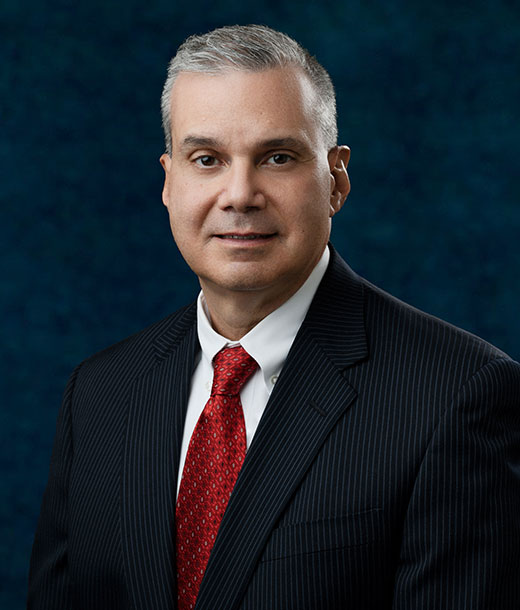- contact us 24/7
- Call For A Consultation
- 928-213-5916
- Home
- Our Firm
- Practice Areas
- Personal Injury
- Criminal Defense
- Estate Planning
- Results
- Client Reviews
- Courts
- Bullhead City Courts
- Chino Valley Courts
- Cottonwood Courts
- Flagstaff Courts
- Fredonia Courts
- Holbrook Courts
- Jerome Courts
- Kingman Courts
- Lake Havasu City Courts
- Mayer Courts
- Page Courts
- Prescott Courts
- Prescott Valley Court
- Sanders Courts
- Seligman Court
- Show Low Courts
- Verde Valley Court
- Sedona Courts
- Williams Courts
- Winslow Court
- United States District Courts
- Contact
- Home
- Our Firm
- Practice Areas
- Personal Injury
- Criminal Defense
- Estate Planning
- Results
- Client Reviews
- Courts
- Bullhead City Courts
- Chino Valley Courts
- Cottonwood Courts
- Flagstaff Courts
- Fredonia Courts
- Holbrook Courts
- Jerome Courts
- Kingman Courts
- Lake Havasu City Courts
- Mayer Courts
- Page Courts
- Prescott Courts
- Prescott Valley Court
- Sanders Courts
- Seligman Court
- Show Low Courts
- Verde Valley Court
- Sedona Courts
- Williams Courts
- Winslow Court
- United States District Courts
- Contact
Flagstaff Living Trust Lawyer

Table of Contents
ToggleFlagstaff Living Trust Attorney
A Revocable Living Trust is a legal document that allows you (the grantor/ trustor) to transfer legal ownership of assets during your lifetime into a trust. It designates who will manage these assets (the trustee) should you become incapacitated or upon your death, and who will receive the principal and/or income from the assets upon death (the beneficiary). The process of creating a revocable living trust can be explained in detail by a Flagstaff revocable living trust lawyer.
This path of protection may be a good option for you if you have an illness that may cause you to become incapacitated in the future, want to avoid probate, or want to keep your financial affairs private.
FAQs
Q: How Much Does a Revocable Living Trust Cost in Arizona?
A: A revocable living trust in Arizona can cost a couple of thousand dollars. It can generally range from $2,000 to $10,000, depending on the complexity of the trust. Other factors that can influence the cost of a living trust include the amount of assets involved, the value of the home, the amount of family members involved, and the fee structure of the attorney. Some attorneys charge a flat fee rate for living trusts and some attorneys will charge an hourly fee.
Q: Can You Set Up a Trust Without an Attorney in Arizona?
A: It is possible to set up a revocable living trust without the help of an attorney in Arizona. However, it is generally recommended that you engage the help of an attorney who has the qualified legal experience to help you. It is important that these documents are created correctly and that they are not susceptible to future litigation. For those who are adamant about setting up trusts or wills on their own, the Uniform Probate Code can be a good resource to utilize.
Q: How Do I Fund a Living Trust in Arizona?
A: To fund a revocable living trust in Arizona, you first need to create the trust document. The trust document should outline all of the details of the trust and how it will be executed. Items such as the names of the trustee and beneficiaries should be included.
Once the trust is created, it should be signed and notarized. The final step is to fund the trust by transferring any assets into the trust entity. The process can quickly become complex, and it often requires the help of an experienced trust attorney.
Q: What Is the Difference Between a Testamentary Will and a Revocable Living Trust in Arizona?
A: The difference between a Testamentary will (more commonly known as a last will and testament) , and a revocable living trust is that a testamentary will typically will cover property that is in your name until your death, and a revocable living trust will cover property that is transferred specifically into the trust.
A testamentary will usually does not take effect until you pass away, and there is no impact on your assets while you are alive. One benefit of revocable living trust is that they will also avoid the Arizona probate process. It is a good idea to contact a Flagstaff estate planning lawyer who can walk you through the differences in great detail.
Q: What is a Revocable Living Trust in Arizona?
A: Revocable living trusts are trusts that can be changed after the trust has been created. Irrevocable trusts typically cannot be changed once they have been created. A revocable living trust allows the granter to modify the trust with relative ease.
A revocable living trust is set up so that it can be modified as financial positions or personal situations change. The management and distribution of assets can be modified as needed. A revocable living trust is a great way for Arizona residents to help mitigate against the probate process.
ALREADY HAVE AN ESTATE PLAN?
Is your estate up-to-date with your current life plan and wishes? An estate plan is a document you always want to make sure is up to date.
With over 50 years of combined experience, we can help. Our firm possesses the dedication, determination, and compassion necessary to help you successfully plan for the future. Call us at (928) 213-5916 or Contact Us Here to speak with one of our experienced Flagstaff estate planning attorneys!
Estate Planning
Our Team
Mr. Glazer helped me with a felony case with great results. I was extremely satisfied with what the care and professionalism in which he handled my case. From start to…
Kil L.
Mr. Glazer, actually make sure you call him Steve, was extremely professional and helpful. The first thing he said to me when I walked in was that he understood because…
Alex H.
I have worked with a number of criminal and corporate lawyers but Stephen is truly one of the best. A family member had serious criminal charges, as well as, violating…
Sue G.
I was pulled over for DUI about a year ago. This is probably one of the worst experiences you can go through. Expect to drop about $10k total for attorney…
Jack L.
One mistake can alter your life. A DUI not only can be life altering, but career ending as well. That certainly was the case for me. I was arrested for…
Dave F. Recommended Steve Glazer
I found Mr. Glazer after being referred by a friend. My past experiences with attorneys had not been mutually beneficial or therapeutic. I was immediately impressed by Mr. Glazer’s consistency…
Sean Recommended Steve Glazer
I was facing losing my career, home and overall livelihood from being caught in Arizona with a suspended Commercial Driver’s License. When surfing the web for attorneys in Flagstaff, Mr.…
Trena Recommended Steve Glazer
I hired Steve to represent my son on an out-of-state DUI. I was impressed with Steve’s qualifications online. I was able to immediately get in contact with him. Steve had…
Cindy Recommended Steve Glazer
Mr. Glazer’s fees are not inexpensive, because he knows he is highly effective. He told me: “you get what you pay for”. He was 100% right. After 6 months, my…
Jose Recommended Steve Glazer
I was charged with a DUI right before I was about to move to another state for a job. I was told that I couldn’t leave the state. I called…
Judith Recommended Steve Glazer
I had been a victim of false allegations but due to the seriousness of the offense the state was very hesitant to drop the charges. I knew almost immediately Steve…
Franklin Recommended Steve Glazer
Steve has done a wonderful job with my case. He worked hard at it and did not hold back. I was always well informed and in constant contact with him.…
Rylan Recommended Steve Glazer
I cannot find the words to describe the experience and representation I received while working with Mr. Steve Glazer. I recently found myself in a situation where I was wrongfully…
Ang Recommended Steve Glazer
I have to say, it was the best thing I did by going to Mr. Glazer for help regarding my legal issue, and I could not have asked for a…
MC Recommended Steve Glazer
I don’t know what I would have done without Mr. Glazer. I found him online, sent a message to his office, and within minutes he personally contacted me by phone.…
J. Salas Recommended Steve Glazer
Steve Glazer represented me for two cases recently, one minor and one major. Being a student-athlete in college the outcomes of these cases could have changed my life dramatically only…
Alex Recommended Steve Glazer
Excellent legal representation. If you are looking for a top notch attorney in Arizona I would definitely recommend Steve Glazer. The final result of my case was a win at…
Sam P. Recommended Steve Glazer
Not only is Steve an extremely approachable and compassionate person, but he is absolutely incredible at his job.
Alex Recommended Steve Glazer
I can sincerely say that Steve was out for my best interests and not simply following the money. I am immensely satisfied with Steve as my lawyer and would recommend…
Daniel Recommended Steve Glazer
You will never find a more sympathetic firm that is dedicated to seeing true justice done.
Din’e Recommended Steve Glazer
I am so thankful for Mr. Glazer and all of the hard work he has put into my case! I could not have asked for a better attorney or a…
Sarah Recommended Steve Glazer
Best Lawyer in Flagstaff, if not the State. Steve Glazer helped me more than I could have ever imagined.
Todd Recommended Steve Glazer
I found myself in a very difficult circumstance wit the Federal Government and needed a great attorney to help me. I had never been in trouble before and was completely…
Anonymous Recommended Stephen R. Glazer
Steve Glazer and his team are fantastic! I made some mistakes in the past and Steve was able to get me that second chance. They got my case done very…
Jeffrey Recommended Steve Glazer
Mr. Glazer helped me with a felony case with great results. I was extremely satisfied with what the care and professionalism in which he handled my case. From start to…
Kil Recommended Steve Glazer
I found Steve Glazer on the internet and chose him to represent me based first on his excellent reviews and second, after speaking with him on the phone. He took…
Benjamin Recommended Steve Glazer
"I've used keith Hammond twice in the last 8 years. He's a great lawyer and good person. Honest with you and what you should think about, he's very knowledgeable about…
Recommended Keith A. Hammond
"Mr. Hammond was truly a saving grace in my case. I was charged with a DUI and was probably going to deal with all that comes with it. Keith Review…
Recommended Keith A. Hammond
"Keith was more than concerned about the case, he was concerned about the person involved. Over a period of more than a year, Keith handled an assault case, studied and…
Recommended Keith A. Hammond
"Choosing Keith Hammond as my attorney was an excellent decision. He is intelligent, kind, and extremely well-versed in law. He identified the particulars of my case, and knew exactly what…
Recommended Keith A. Hammond
"Keith and staff were friendly and professional. I felt my personal injury case was settled fairly. Thanks Keith!"
Recommended Keith A. Hammond
"Keith is so easy to work with. I was wrongly accused of a situation I had nothing to do with, got the citation in the mail & wanted to fight…
Recommended Keith A. Hammond
"I can not say enough about this amazing firm! I live in Texas and my son was arrested in Arizona. I picked Keith Hammond at random from an attorney website,…
Recommended Keith A. Hammond
"I had a difficult time finding a lawyer to take on my case. Mr. Hammond handled my case quickly and accurately. He kept me informed of what was being done…
Recommended Keith A. Hammond
"Keith provided outstanding legal representation for a very tricky situation. From the beginning, he was clear and effective in his communication with us and the court. He engaged outside resources…
Recommended Keith A. Hammond
"My partner and I have worked with Keith a couple times now and he has been a fantastic attorney! He is both knowledgeable and resourceful. In both cases the situations…
Recommended Keith A. Hammond
"Unfortunately, I have had to hire Keith Hammond a few times for family and friends. His rates are reasonable, he is very professional and knowledgeable. One thing I really like…
Recommended Keith A. Hammond
"Keith Hammond was extremely helpful and I was delighted to work with him. Him and his office kept in touch throughout our duration of working together. I would highly recommend…
Recommended Keith A. Hammond
"Mr. Hammond and his staff were very responsive and quickly returned my calls to them. Mr. Hammond kept me informed and current on my case, he also was very patient…
Recommended Keith A. Hammond
"I have known Keith for almost fifteen years. I have hired him for any legal situation I come upon. I recommend him to people that ask me about attorneys in…
Recommended Keith A. Hammond
"I highly recommend Keith Hammond. Keith provided detailed information on our case; short term and long term strategies as well as clear guidance. He was thorough, supportive and patient with…
Recommended Keith A. Hammond
"I was facing several different charges, one of which was a Felony charge. I had never been accused of a crime before, and I was terrified. Keith explained every step…
Hiring Keith Hammond Was One of the Best Decisions I Have Made Recently.
"I really liked Keith. My case didn't go quite as I hoped, but I believe that was a function of circumstance and not my choice in lawyers. Keith had some…
Recommended Keith A. Hammond
"I became aware of a legal issue after I had moved out of state and I did not know how to take care of it remotely. Keith was great and…
Recommended Keith A. Hammond
"Keith A. Hammond, Attorney At Law represented me in my accident injury case. Throughout the process he explained everything I didn't understand to my satisfaction. He answered all my communications:…
Recommended Keith A. Hammond
"I took my family to Arizona on vacation and rented a high end home on a beautiful lake. One evening, a couple of family members were intoxicated and an argument…
Recommended Keith A. Hammond
"Keith was personable, kind, honest, and helpful. He communicated clearly and often, and made sure that my injury case went as smoothly as possible. I would recommend him to anyone…
Recommended Keith Hammond
Mr. Smets took over a case that was stalled because the prosecutor was firm in his position and unwilling to look at a path that would be acceptable for both…
Recommended Jacob R. Smets
Mr. Smets was consulted and then hired by my daughter to handle an criminal moving violation due to injury. She would have had a criminal record moving forward and lost…
Recommended Jacob R. Smets
"Phenomenal Attorney": I first reached out to the law office of Glazer & Hammond after reading many positive reviews, and I couldn't be more thankful that I did. Jacob (Jake)…
Recommended Jacob R. Smets
Jacob took my call regarding a traffic ticket and was very helpful and provided valuable information. Thank you Jacob.
Recommended Jacob R. Smets
I called Glazer after not receiving a call back from another firm (tried twice). Jake picked up the phone and gave me his immediate attention. Our son is a college…
Recommended Jacob R. Smets
“We would like to first say how grateful we are to have found Steve Glazer. Our son, an NAU student, found himself in some very serious trouble while in Flagstaff.…
Judith Recommends Stephen R. Glazer
“I found Steve Glazer in the yellow pages. I met with a few lawyers prior to him, but I felt most confident with Steve. He explained to me what was…
Trena Recommends Stephen R. Glazer
“I cannot find the words to describe the experience and representation I received while working with Mr. Steve Glazer. I recently found myself in a situation where I was wrongfully…
Ang Recommends Stephen R. Glazer
“One mistake can alter your life. A DUI not only can be life altering, but career ending as well. That certainly was the case for me. I was arrested for…
Dave F. Recommends Stephen R. Glazer
“Steve has done a wonderful job with my case. He worked hard at it and did not hold back. I was always well informed and in constant contact with him.…
Rylan Recommends Stephen R. Glazer
“Mr. Glazer, actually make sure you call him Steve. He was extremely professional and helpful. His office constantly kept me updated on the status of the case and he was…
Alex H. Recommends Stephen R. Glazer
“Excellent legal representation. If you are looking for a top notch attorney in Arizona I would definitely recommend Steve Glazer. The final result of my case was a win at…
Sam P. Recommends Stephen R. Glazer
“I have to say, it was the best thing I did by going to Mr. Glazer for help regarding my legal issue, and I could not have asked for a…
MC Recommends Stephen R. Glazer
“Mr. Glazer's fees are not inexpensive, because he knows he is highly effective. He told me: "you get what you pay for". He was 100% right. After 6 months, my…
Jose Recommends Stephen R. Glazer
“I had been a victim of false allegations but due to the seriousness of the offense the state was very hesitant to drop the charges. I knew almost immediately Steve…
Franklin Recommends Stephen R. Glazer
“I am so thankful for Mr. Glazer and all of the hard work he has put into my case! I could not have asked for a better attorney or a…
Sarah Recommends Stephen R. Glazer
“I have never been in legal trouble before, so I had no idea what to do. Steve was very honest and forthcoming with everything. He was the first attorney I…
Sean Recommends Stephen R. Glazer
“I hired Steve to represent my son on an out-of-state DUI. I was impressed with Steve's qualifications online. I was able to immediately get in contact with him. Steve had…
Cindy Recommends Stephen R. Glazer
“I found him online, sent a message to his office, and within minutes he personally contacted me by phone. I told him what my problem was and at that point…
I Don’t Know What I Would Have Done Without Steve Glazer.
“I found Mr. Glazer after being referred by a friend. My past experiences with attorneys had not been mutually beneficial or therapeutic. I was immediately impressed by Mr. Glazer's consistency…
Anonymous Recommends Stephen R. Glazer
“I was facing losing my career, home and overall livelihood from being caught in Arizona with a suspended Commercial Driver's License. When surfing the web for attorneys in Flagstaff, Mr.…
Anonymous Recommends Stephen R. Glazer
“I was charged with a DUI right before I was about to move to another state for a job. I was told that I couldn't leave the state. I called…
Anonymous Recommends Stephen R. Glazer
"I can sincerely say that Steve was out for my best interests and not simply following the money. I am immensely satisfied with Steve as my lawyer and would recommend…
Daniel Recommends Stephen R. Glazer
“Steve Glazer represented me for two cases recently, one minor and one major. Being a student-athlete in college the outcomes of these cases could have changed my life dramatically only…
Alex Recommends Stephen R. Glazer
"Not only is Steve an extremely approachable and compassionate person, but he is absolutely incredible at his job."
Alex Recommends Stephen R. Glazer
Glazer, Hammond & Smets, PLLC
Providing Experienced and Compassionate
Legal Counsel for Northern Arizona.
Request Your Free Consultation
Fields Marked With An “*” Are Required
Our Location
Copyright © 2025 Glazer, Hammond & Smets, PLLC.
All rights reserved.Disclaimer | Site Map | Privacy Policy






